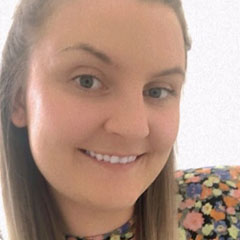Emily Hayward, Research Assistant, Department of Health Sciences
Emily is a Research Assistant in the Mental Health and Addiction Research Group (MHARG), she graduated in 2014 with a BSc (Hons) Psychology.

Since graduating, Emily has gained extensive experience working with infants, children and young people ranging in age from six months to 18 years old in research and NHS settings.
email: e.hayward@york.ac.uk
Our 60-second interview with Emily:
Could you please tell us what work you do in the field of mental health?
I currently support research activity on the Community-based Behavioural Activation Training for Depression in adolescents programme of research (ComBAT). ComBAT aims to co-produce and evaluate a new intervention based upon Behavioural Activation to support young people aged 12-18 years with mild to moderate depression in school-based and community settings. As part of my role, I meet with young people before and after they receive interventions to collect quantitative and qualitative data.
What do you find most rewarding and inspiring in this work?
Through my experience working with young people and families, I am keenly aware of the challenges they currently face in terms of accessing timely support for mental health. The most rewarding part of my role is having the opportunity to see the changes young people experience through taking part in a research study.
What is the most challenging or complicated aspect of this work?
For many of the young people, families, and professionals I work with, this is the first time they have taken part in a research study. I feel a sense of responsibility to ensure that their experience is positive and meaningful.
What impact do you hope your work is having - or can potentially have?
I hope through my role empower people to engage mental health research in the future, particularly children and young people. Research is a powerful tool for promoting change. Through the work we do as part of ComBAT, I am excited to play a role in developing a low-intensity and timely intervention that is accessible to young people.
Could you share with us one piece of advice that you follow for your own mental health?
Control the controllables - adapt to everything else!